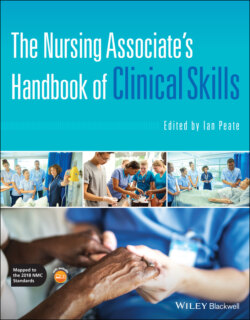Читать книгу The Nursing Associate's Handbook of Clinical Skills - Группа авторов - Страница 210
Jargon and Abbreviations
ОглавлениеLanguage that is used in record‐keeping must also be jargon free. It is worth remembering that the language used in the record could be interpreted or misinterpreted by any of the previously mentioned groups, including families, patients, allied health professionals and external agencies such as the police. There are abbreviations that are commonly used in all walks of life such as National Health Service (NHS) which most people would know refers to the NHS; however, there are many times when jargon or abbreviations should not be used, for example, MI which could stand for myocardial infarction but could equally stand for motivational interview or DOD which could mean date of discharge or date of death.
This does not mean that medical terminology and abbreviations should not be used such as cerebrovascular accident (CVA) as opposed to writing stroke (note the convention of writing the term in full and then abbreviating the term afterwards. This gives clarity as to abbreviations and their meaning later in the record.) In this instance, it is the lay term stroke that has several meanings, whereas CVA is quite explicit.
Due to instances where a word used in a record has had different connotations and the appropriate or required action has subsequently not been forthcoming, the requirement for records to be made clear by being jargon free is apparent. Linked to this section, there has to be a consideration of spelling.
